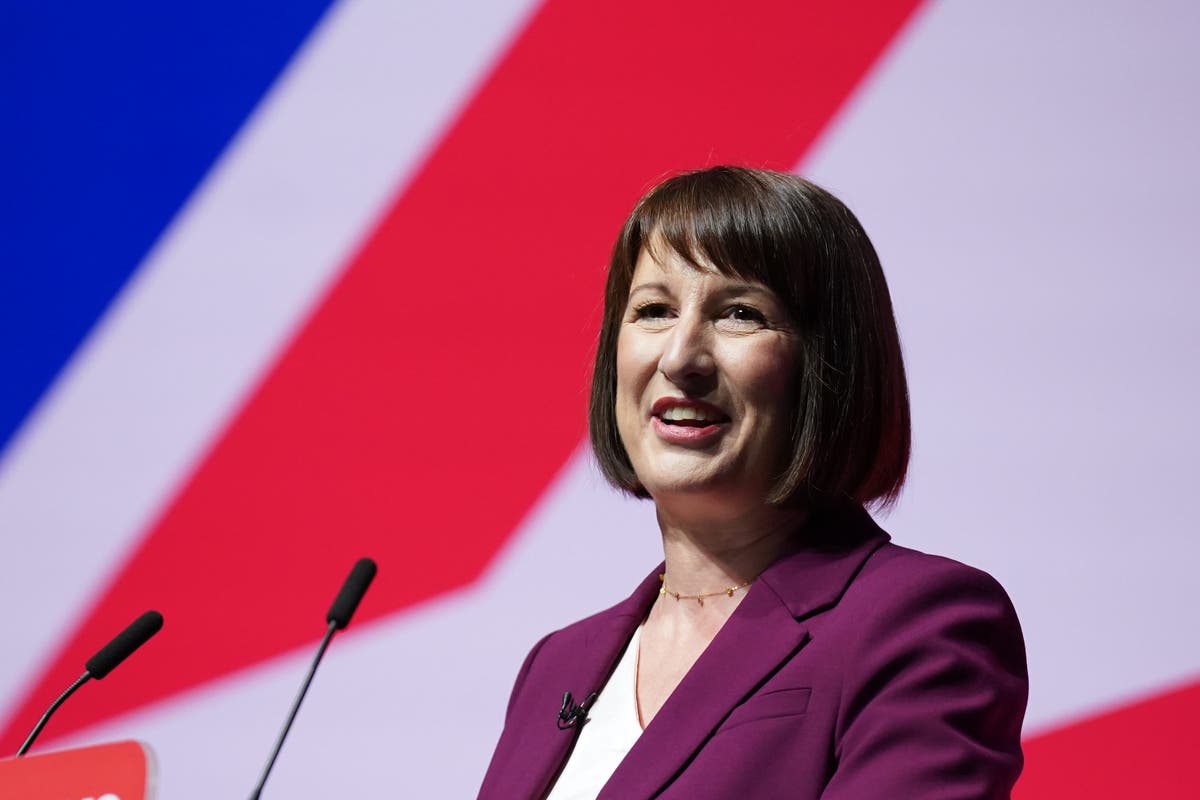Rachel Reeves will announce a plan to change Britain’s debt rules that could open the door for the Government to spend billions more on infrastructure, it has been reported.
The Guardian said on Thursday that the Chancellor will confirm that next week’s Budget will include a new way to assess the UK’s debt while at International Monetary Fund meetings in Washington.
Ms Reeves will be looking to raise up to £40 billion from tax hikes and spending cuts in order to avoid a return to austerity in next Wednesday’s fiscal statement.
Since entering office, Labour have been pointing to a “£22 billion black hole” in the public finances.
Ahead of her meetings in the US, the Chancellor promised that her Budget will be an “economic reset” for the UK, and the statement will invest in the “foundations of future growth”.
She said: “A Britain built on the rock of economic stability is a Britain that is a strong and credible international partner.
“I’ll be in Washington to tell the world that our upcoming Budget will be a reset for our economy as we invest in the foundations of future growth.
“It’s from this solid base that we will be able to best represent British interests and show leadership on the major issues like the conflicts in the Middle East and Ukraine.”
Ms Reeves was handed a pre-Budget boost by the IMF, which on Tuesday upgraded its 2024 growth forecast for the UK economy.
It said UK gross domestic product (GDP) is due to grow by 1.1%, a significant upgrade after predicting 0.7% growth in July.
But the IMF’s chief economist Pierre-Olivier Gourinchas said countries should tread a “narrow path in terms of fiscal consolidation”, after being asked about reports the Chancellor is considering changes to fiscal rules that could allow the state to borrow more.
He added that countries should not do “too much too quickly” in relation to tax and spending decisions in order to maintain stability.
In Washington, Ms Reeves will attend G7, G20 and IMF meetings to discuss global economic issues.
Joined by Energy Secretary Ed Miliband, she will support proposals to expand financing for countries to meet the United Nations’ Sustainable Development Goals and tackle unsustainable debt.
The Chancellor will also press for all G20 countries to meet G20 best practice on debt transparency and move swiftly to implement support for countries facing pressing liquidity problems.
It comes as a coalition of economists, green campaigners, millionaires, fuel poverty groups and a union warned the Chancellor her promise of a reset cannot be delivered without investment in public services and infrastructure.
An open letter – signed by 28 organisations including Greenpeace and the Unite Union – urged Ms Reeves to introduce a wealth tax on the assets of the super-rich to reduce inequalities and fairly fund measures to help tackle the climate crisis.
I look forward to speaking to our international partners … about how the UK is back in the business of climate leadership, standing up for the British people by leading on the biggest long-term threat our world faces
Energy Secretary Ed Miliband
The letter said the introduction of a wealth tax in the Budget could “reduce the stark inequalities in this country and help raise the vital funds needed to ensure that the transition to a greener, cleaner, more prosperous future is fair for everyone at home and abroad”.
Meanwhile, Mr Miliband will meet finance chiefs including representatives from the World Bank to discuss supporting those on the front line of the climate crisis.
He and Britain’s climate envoy Rachel Kyte are expected to seek to use the trip to stoke ambition before Cop29 in two weeks and pitch the UK as “back in the business of climate leadership”.
Mr Miliband said: “The only way to protect current generations in the UK is by making Britain a clean energy superpower, and the only way to protect our children and future generations is by leading global climate action.
“With Cop29 kicking off in just over two weeks, we have a unique opportunity in Washington to focus minds on securing ambitious outcomes on pushing world leaders to deliver the climate finance needed to keep 1.5 degrees alive.
“I look forward to speaking to our international partners – alongside the Chancellor and Rachel Kyte – about how the UK is back in the business of climate leadership, standing up for the British people by leading on the biggest long-term threat our world faces.”

